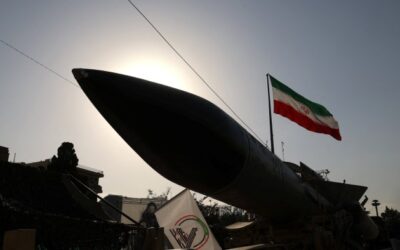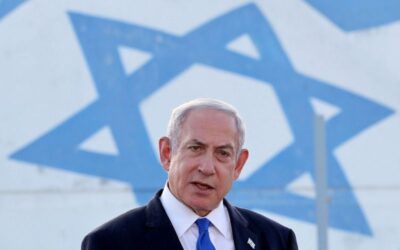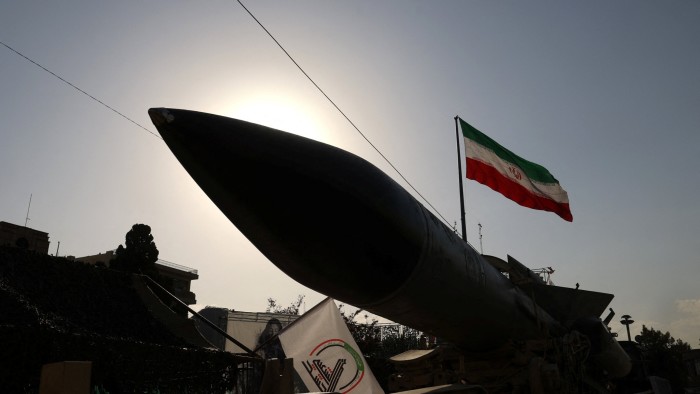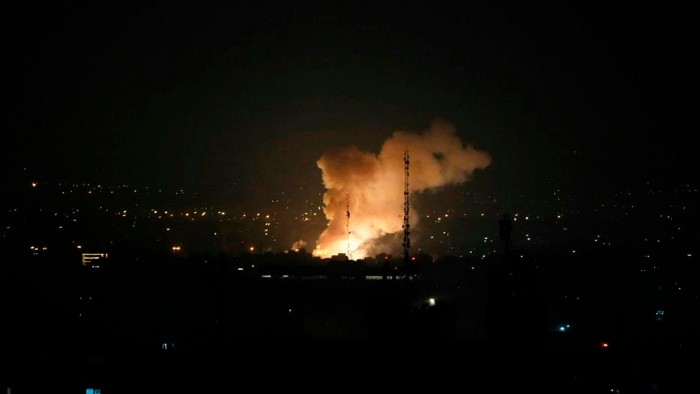Fake McDonald’s lobbies Putin to block return of western companies
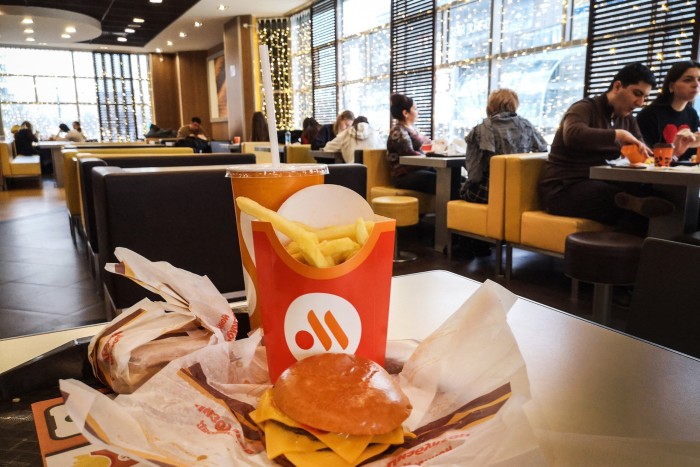
The chief executive of a Russian burger chain recently warned Vladimir Putin of the dangers facing his business if McDonald’s, its former parent, exercises its right to buy it back.
“If the brand returns, the [company’s] IT systems will become foreign again, all kitchen equipment will become foreign,” Oleg Paroev told Russia’s president. “And all the enormous work of our colleagues, our Russian partners will turn out . . . to have been to some extent in vain.”
At that televised Kremlin meeting in late May, Putin reassured him and other executives who shared similar concerns that he had already ordered the government to find a solution to nullify the dreaded buyback clause.
“Remember the famous joke: ‘Only cowards pay their debts.’ It’s the same here,” Putin said.
The Kremlin meeting was a placation to companies such as Vkusno i tochka (“Tasty, full stop”), which have taken over the business of western brands after Putin ordered the full-scale invasion of Ukraine in 2022. Vkusno i tochka was set up by former McDonald’s franchisee Alexander Govor, who bought out the US company’s operations when it left the country.
Those ersatz brands have reaped the benefits of a consumer boom in a less competitive environment — and are now fighting to ensure it stays that way.
Shortly before the meeting, Russian lawmakers introduced a bill that would allow domestic businesses to flout their buyback agreements with western companies that took place post-invasion if the pre-agreed price was below the asset’s current value.
The proposed law, according to two people familiar with the matter, was the result of intense lobbying by Vkusno i tochka, which became the standard-bearer for this new wave of Russian companies.
Largely unknown to the broader public, the businessmen who lobbied Putin at the recent Kremlin meeting are part of an emerging new class that have thrived even as the war has hobbled the businesses of Russia’s top-level oligarchs, cut off by sanctions from western assets and markets.
“These are war profiteers and captains of import substitution who have risen with the tide,” said Alexandra Prokopenko, a fellow at the Carnegie Russia Eurasia Center in Berlin. “This is to protect themselves from competition. How else can they explain that the asset needs to stay with them? Only by showing the threat from capricious foreigners.”
Putin’s embrace of the protectionist drive is a shift from just months earlier, when he ordered his cabinet to devise rules for western companies’ return after US President Donald Trump vowed to restore commercial ties with Russia.

Now, rapprochement with the US remains a distant prospect as long as the Ukraine peace process stays moribund. Moscow has admitted no western company has made a formal attempt to go back.
The winners in the new Russian economy have a vested interest in keeping it that way.
A former senior Russian official said: “Many people learned to make a lot of money out of all of this — commercially . . . and also from the budget. This is a real motivation to keep the status quo.”
In the retail, catering and hospitality sectors, the exit of multinationals has meant a growth bonanza for the Russian players that gobbled up the spoils.
“There was literally speaking an empty space on the shelf,” said Konstantin Loktev, executive director of Nielsen Data Factory, the Russia market research firm formerly affiliated with NielsenIQ. “And this is where the local companies came into play.”
If the long lines outside the first Moscow McDonald’s in 1990 symbolised the dawn of Russian capitalism, Vkusno i tochka’s success represents the protectionist, patriotic bent that has come to characterise Putin’s wartime economy.

The restaurant opened on Russia’s national day three years ago — a move Paroev told Putin the company made at the Kremlin’s suggestion — serving menu items such as the “Big Hit”, which closely resembles McDonald’s Big Mac.
Vkusno i tochka now serves 2mn customers a day and grew its revenue 20 per cent year on year to Rbs187bn ($2.4bn) in 2024, compared with Rbs75bn in 2021, the last year before the war.
Overall, the consumer goods sector in Russia had 16 per cent growth between March 2024 and March 2025, Loktev said, with some individual companies reporting a faster-growing top line.
Chernogolovka, the Russian food producer that acquired Kellogg’s snack business and Heinz’s baby food business in the country, reported a 29 per cent year-on-year jump in sales in first quarter of 2024. LitEnergy, an energy drink company associated with the popular Russian YouTuber Mikhail Litvin, has had a 477 per cent growth in sales over the same period.
The boom for the new Russian companies has come on the heels of an economy drastically reshaped by the war. As western sanctions have pushed Russia to become less dependent on exports, higher salaries, driven largely by increased military wages and the wartime economy, have fuelled domestic demand and private consumption.
“The economy has become less dependent on exports, more dependent on domestic demand and private consumption, especially, which has positive and negative sides,” said Vasily Astrov, a Russia expert at the Vienna Institute for International Economic Studies.
The Russian government has doled out generous subsidies to companies struggling to cope with western sanctions and to replace imports from Europe and the US.
At the meeting with Putin, businesses such as Neurosoft, a medical equipment manufacturer, and the Kursk Electrical Equipment Plant reported revenue growth ranging from 70 per cent to 300 per cent, all noting they had benefited from government support programmes.
“Never before has such equipment been manufactured in Russia. It has always been purchased from countries such as Finland, the Czech Republic, Germany and Poland,” Yan Tsenter, from UZTM-Kartex, a leading manufacturer for mining, construction and energy equipment currently under US sanctions, told Putin at the meeting.
Whereas Russian businesses once parked their capital in safer jurisdictions outside the country — Cyprus, a haven for Russian offshore holding companies, was for many years the largest foreign investor — many business owners are instead seeking to reinvest at home.
Igor Rybakov, the billionaire co-owner of Technonicol, a global producer of roofing, waterproofing and thermal insulation, said his company had been planning a €1bn investment in Europe before the war. Instead, that investment had been curtailed to €300mn, with the money redirected back to the domestic market and countries considered “friendly” to Russia.
“We thought that Russia was integrating with Europe. There are no such sentiments now. And in three years, Russia has completely reoriented itself,” he said in an interview.
In 2023, amid the exodus of western companies, Technonicol acquired the Russian subsidiary of the European insulation supplier Ursa. Over the past three years, the group has reported revenue and profit growth of about 15-20 per cent.
“Mature Russian business has a pragmatic point of view and uses any wind direction to its advantage,” he said.
Other industries want the Kremlin to go farther still. Last month, more than 300 IT companies wrote a joint letter asking the government for greater protections for domestic players should western groups return.
And Putin appears only too happy to oblige.
“We need to strangle them,” the Russian leader said when asked about western IT services that were still available in Russia. “They’re trying to strangle us, so we need to reciprocate.”
